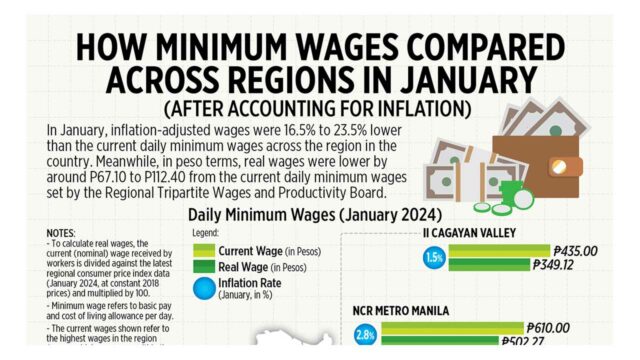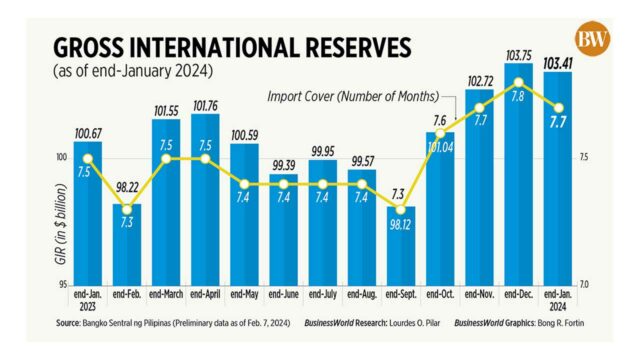Forecast for the Year of the Wood Dragon
According to shengxiao, or the Chinese zodiac, 2024 is considered the Year of the Wood Dragon, which begins on Feb. 10 and ends on Jan. 28 next year. This period is expected to be marked by a strong sense of energy and innovation, making it an ideal time for new beginnings and creative endeavors.
The Dragon is a symbol of power, nobleness, honor, luck, and success, while the wood element is associated with ambitiousness, vitality, and determination. The combination of the two is said to make 2024 a year of abundance and unpredictability. Hence, the Year of the Wood Dragon is believed to bring about positive transformations, challenges, and opportunities.
Marites Allen, popularly known as the “feng shui queen,” has recently revealed on her official website her forecasts for each animal sign as they enter the Year of the Wood Dragon.
According to Ms. Allen, the year 2024 will bring an auspicious opportunity for those born under the Rat zodiac sign. This rare cosmic alignment will bring together the Wealth and Success stars, paving the way for a period of great luck and prosperity. For those who have been facing challenges and obstacles in their lives, this alignment could be the turning point they have been waiting for, as the positive energy of the stars will help them overcome any difficulties and pave the way for success in all areas of life.
Meanwhile, the Ox is currently facing a turning point in its destiny, with good luck on its side. Ms. Allen said that past challenges have prepared them for success, leading to newfound opportunities and blessings waiting to be discovered. “Misunderstandings, disagreements, the ebb and flow of cosmic tides are natural phenomena. To navigate these cosmic currents, engage in open communication and sail through disagreements with grace,” she advised.
When it comes to opportunities and challenges, the year 2024 promises to be a tale of contrasts for those born under the sign of the Tiger. Ms. Allen predicts that 2024 will be a year of great fortune and harmony, filled with both pleasant and challenging experiences. “Like a forge that tempers steel, these challenges will mold you into someone with an unwavering spirit,” Ms. Allen said.
On the other hand, Ms. Allen said that Rabbit-born people are destined to experience a wide array of opportunities across various facets of their lives. This year, the Victory and Success stars are shining favorably upon them, bringing the promise of a fresh start and encouraging them to pursue long-held dreams with renewed enthusiasm. Regardless of the challenges faced in the previous year, such as financial setbacks, turbulent relationships, business obstacles, or health issues, 2024 offers an opportunity to mend what’s been broken, revitalize aspirations, and move forward with a newfound sense of optimism.
Those born under the Dragon zodiac sign may receive favorable news and should prioritize reconciliation over conflict. Ms. Allen mentioned that one potential barrier to achieving their goals is their state of health. If they are experiencing a lack of energy, poor health, or a lack of motivation, it is important to seek assistance in order to address their health and wellness needs. Ms. Allen also advised them to be conscientious about their actions and decisions, thereby earning more favorable karmic outcomes.
2024 also brings personal growth and development for those individuals born under the Snake sign. Despite the looming threat of illness, there are several positive stars aligned in their favor. Ms. Allen predicts that these stars promise a fresh start and ignite the flames of ambition, indicating a year of growth and success.
Horse-born individuals are still in for a prosperous year ahead, according to Ms. Allen. However, it is crucial to remain cautious as potential threats of robbery, losses, or injuries loom in their chart. When it comes to health, the outlook for the Horse may bring about some unfortunate issues and concerns. Ms. Allen said that they should invest in their annual physical examinations or any routine health practices to ensure their well-being.
Meanwhile, the auspicious Future Prosperity Star No. 9 is shining on those born under the Sheep sign, indicating increased prosperity and fortune. With careful navigation, this good luck could potentially increase up to nine times. Ms. Allen said, “It’s crucial to acknowledge that success won’t arrive effortlessly; a few obstacles may indeed dot your journey towards affluence. Yet, with unwavering determination, you are poised to be counted among this year’s triumphant individuals.”
This year, the Future Prosperity star is expected to bless people born under the Monkey sign with abundant opportunities and great fortune. Since the Dragon is the ruling animal of the year, this is an especially good time for Monkeys in terms of their work and finances.
As the secret friend of the Dragon, Rooster-born people are presented with numerous opportunities in life. According to Ms. Allen, engaging in social events and networking can lead to valuable connections that offer advantages both personally and professionally. However, it’s important to note that the Rooster has the Misfortune star, which indicates challenges in many forms.
Ms. Allen also mentioned that 2024 is the year of conflict for Dog-born individuals. However, there are both positive and negative forces at work. The key to success this year lies in embracing change and being open to new possibilities. “Consider shifting your location, exploring new career paths, or even undergoing a refreshing transformation in your appearance. By embracing change, you can outshine the wrath of the Dragon and pave the way for your success in 2024,” Ms. Allen mentioned.
Pigs or Boars are predicted to have some negative twists and turns this year. Fortunately, people born under this sign have the ability to navigate through any challenges that come their way. Ms. Allen advised them to stay positive and look forward to the abundance of opportunities ahead. In addition, positive changes, particularly in financial life, traveling luck, and educational or progress on professional chances, are also possible this year. However, the star of miscommunication and disputes may pose hurdles, especially in legal matters and personal relationships. Therefore, it is important to be prepared to handle disagreements with tact and diplomacy, as this will help them maintain peace and harmony in life. — Mhicole A. Moral

















